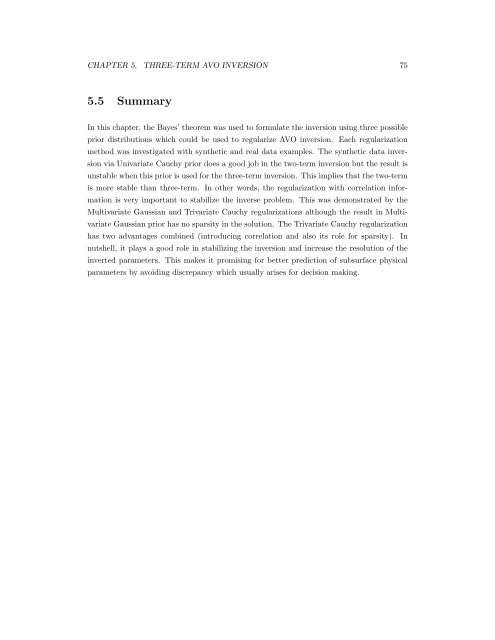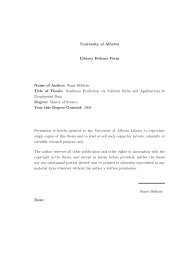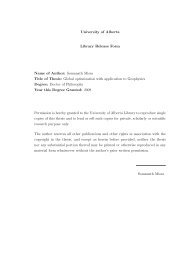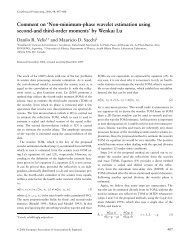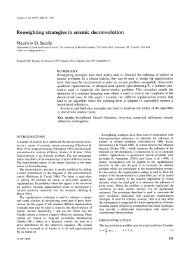Regularization of the AVO inverse problem by means of a ...
Regularization of the AVO inverse problem by means of a ...
Regularization of the AVO inverse problem by means of a ...
Create successful ePaper yourself
Turn your PDF publications into a flip-book with our unique Google optimized e-Paper software.
CHAPTER 5. THREE-TERM <strong>AVO</strong> INVERSION 75<br />
5.5 Summary<br />
In this chapter, <strong>the</strong> Bayes’ <strong>the</strong>orem was used to formulate <strong>the</strong> inversion using three possible<br />
prior distributions which could be used to regularize <strong>AVO</strong> inversion. Each regularization<br />
method was investigated with syn<strong>the</strong>tic and real data examples. The syn<strong>the</strong>tic data inver-<br />
sion via Univariate Cauchy prior does a good job in <strong>the</strong> two-term inversion but <strong>the</strong> result is<br />
unstable when this prior is used for <strong>the</strong> three-term inversion. This implies that <strong>the</strong> two-term<br />
is more stable than three-term. In o<strong>the</strong>r words, <strong>the</strong> regularization with correlation infor-<br />
mation is very important to stabilize <strong>the</strong> <strong>inverse</strong> <strong>problem</strong>. This was demonstrated <strong>by</strong> <strong>the</strong><br />
Multivariate Gaussian and Trivariate Cauchy regularizations although <strong>the</strong> result in Multi-<br />
variate Gaussian prior has no sparsity in <strong>the</strong> solution. The Trivariate Cauchy regularization<br />
has two advantages combined (introducing correlation and also its role for sparsity). In<br />
nutshell, it plays a good role in stabilizing <strong>the</strong> inversion and increase <strong>the</strong> resolution <strong>of</strong> <strong>the</strong><br />
inverted parameters. This makes it promising for better prediction <strong>of</strong> subsurface physical<br />
parameters <strong>by</strong> avoiding discrepancy which usually arises for decision making.


